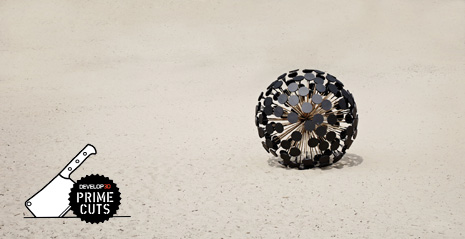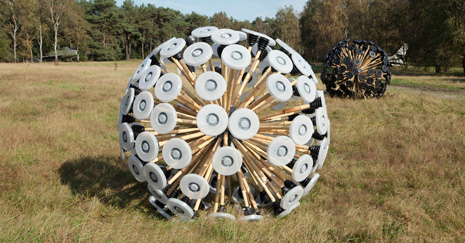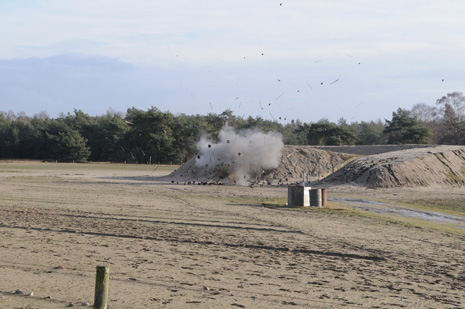
I was browsing the nominees for the Designs of the Year 2012 and there are some interesting ones in the product category – Ron Arad’s somewhat wacky eyewear range, Barber Osgerby’s Olympic torch design, Hovding’s invisible cycle helmet and Black & Decker’s new mini hand vacuum called Orb-It.
However, there was one I couldn’t quite make out. From looking at it, it looked more like an art sculpture than a practical product. However, having delved a bit deeper and read up about it, I think it may just get my vote for the Design of the Year.
It is the rather ingenious Mine Kafon. Ingenious because it is a simple yet very effective design that is sustainable (without really meaning to be) and low cost.

Mine Kafon is a wind-powered land mine clearing device. Designed in the form of a huge tumbleweed, it is constructed from 200 or so bamboo sticks that spike out from a central ball with biodegradable plastic feet fitted to the end of each stick. As it rolls across a landscape, its weight detonates any land mines in its path.
“It also has a GPS chip integrated in it. So you can follow its steps on a website. You can see where it went, where are the safest paths to walk on and how many land mines are destroyed in the area,” explains Mine Kafon’s creator Massoud Hassani, who designed it as part of his graduation project at the Design Academy Eindhoven in The Netherlands.
Hassani moved to Holland in 1998 from Afghanistan. He remembers as a child certain areas surrounding his hometown of Kabul being off limits as they were (and probably still are) mine fields. He actually saw friends getting injured and sometimes fatally from accidentally stepping on a land mine.
Living in the first world you don’t really realise what a massive problem land mines are. There are swathes of wasted land in areas all over the world that are riddled with them, rendering the land useless for people and animals. For instance in Angola there are more land mines then people – 20 million mines to 12 million people.
“Using a tool like Mine Kafon to remove land mines in countries like Angola can help and rebuild economic opportunities in wasted deserts, allowing people to work and live the safe life they deserve,” says Hassani.
Hassani has been working on improving his concept and the Dutch Defence is currently testing it. Although it has been lavished with many awards and received a great deal of attention, in order to make it a reality the project needs support and funding from larger organisations and governments.
Lets hope it does get the support it needs because it is an ingenious solution to a big problem.







